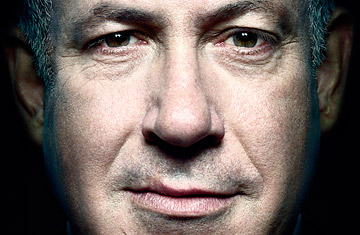
(2 of 4)
For the past six months, Obama's Iran strategy has been gaining force and credibility, as international sanctions have finally begun to bite. Late last year, Congress passed tough measures aimed at Tehran's banks, including Iran's central bank, blocking much of the country's foreign exchange. Then in January, Obama persuaded the European Union to stop buying oil from Iran. The results have been crippling: the rial, the Iranian currency, has lost 75% of its value, and the country is suffering from hyperinflation. With its ally Syria foundering and its major oil consumer China shopping elsewhere for its energy needs, Iran has never before been so alone.
At the same time, the Iranians have accelerated their nuclear program. Last June, Tehran announced it was tripling the speed at which its centrifuges were enriching uranium. Though Tehran claims the program is for peaceful purposes only--for electricity and medical isotopes--the IAEA concluded in November that there were "strong indicators" that Iran was pursuing military applications. Last month Iran allowed inspectors back in for the first time in more than a year, but those inspections ended after just two days when U.N. officials were denied access to Parchin, a military site.
Obama has his reasons for preferring diplomacy. A military strike by Israel would, at most, set back Tehran's nuclear program by a year. It would also unite Iranian hard-liners and likely split the fragile international alliance arrayed against them. The only way to end the Iranian threat permanently is to get the nation to voluntarily give up the pursuit of nuclear weapons. But Netanyahu sees himself as being in a long line of guardians of Israel and is unwilling to take a chance. Recently he has taken to talking about Esther, who saved the Jews from being massacred by the Persians 2,500 years ago.
In January the White House began to view Netanyahu as a wild card. "This is a day when the world needs to commit not to allow another genocide and to act so that weapons of mass destruction don't reach the hands of Iran's ayatullahs," he told the Knesset in a session on Jan. 24 in honor of International Holocaust Remembrance Day. "We can't stick our heads in the sand." Netanyahu spoke about protecting Israelis from "annihilation" and the impending second Holocaust.
By Feb. 2, Washington Post columnist David Ignatius reported, U.S. Defense Secretary Leon Panetta had concluded "that there is a strong likelihood that Israel will strike Iran in April, May or June." At first the Administration tried to back Netanyahu down by convincing him of the futility of striking Iran on his own. In mid-February, Chairman of the Joint Chiefs of Staff Martin Dempsey said, "It's not prudent at this point to decide to attack Iran ... We also know, or we believe we know, that Iran has not decided to make a nuclear weapon."
Which only stimulated more military threats from Netanyahu.
Obama then dispatched to Jerusalem in rapid succession Dempsey, National Security Adviser Tom Donilon, and a slew of other aides to calm Israeli fears and persuade Netanyahu to hold off on bombing Iran. In reply, the Israelis told the U.S.: Stop telling us a strike by our military won't work, and start telling us that if there's no other option, you'll launch one yourself.
